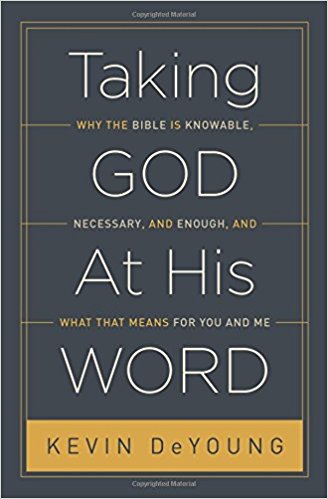How to be discerning with what you read (PTFH part 6) – Hf #91
Welcome back to part 6 in my long running series: Practical Theology for Homemakers! It’s been a while since we started this series. Feel free to jump into this lesson or head back to the other 5 first:
Part 1 we covered: Why theology matters for homemakers – Hf #72, Part 2 is The Goal of Our Christian Life – Hf #74, part 3 is So What’s the Big Deal about Studying God’s Word? – Hf #76, part 4 is Studying the Attributes of God – Hf #78. And then episode #80 was the last part, How God is Different than Us and Why That’s a Good Thing.
I’ve been planning to cover this next part, but it has been such a big topic and I really wanted to make sure I was accurately covering it. Today we are going to be covering a VERY important topic when it comes to our theology: how to be discerning with what we read and listen to.
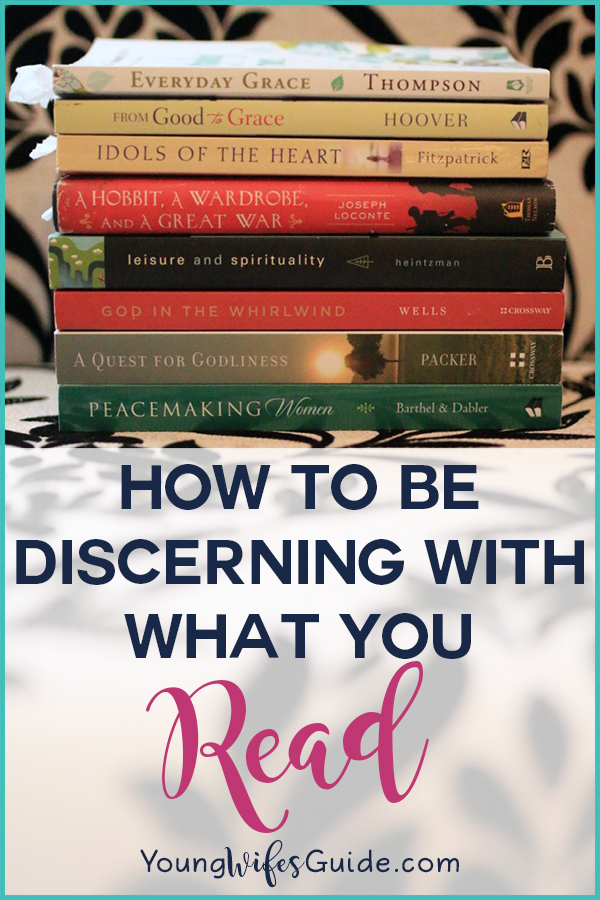
Listen to the Podcast:
We also recorded this blog post as an audio podcast. If you want to listen in instead of reading, click play below or do a combination of both
And don’t forget to subscribe to the podcast in iTunes.
Right click here and save-as to download this episode to your computer.
(Note: I always publish a podcast episode and a full blog post for you to read through. But this blog post today will serve more as a notes page. Listen to the podcast above for the FULL discussion!
Being discerning starts with and is grounded in good theology. How can you know when you come across something wrong? By knowing it’s wrong in the first place. That’s why studying theology, especially systematic theology, is so important.
Why is this important?
Partly due to our ability to access eons of information at our fingertips, there is a ton of false doctrine out there. You can pick up any book or listen to any sermon and come across a ton of false ideas about God or the Christian life. And other teaching is just plain fluffy. Maybe it’s encouraging or humorous at first glance, but doesn’t hold much substance beyond that.

It’s always extremely important for a Christian to be discerning with what they read and listen to, and our present age is no exception to that.
So we need to be on guard. We need to constantly test what we read and what we hear against Scripture.
If you want to learn more about this and how we can know that we can trust God’s Word, then I have a resource recommendation for you. I highly recommend the book, Taking God at His Word by Kevin DeYoung. It’s very clear, straight forward, and extremely practical! If you want to know more about how we can trust God’s Word, when God’s Word applies, and how to know God’s authority more in your life, then I highly recommend this book. I listened to this book as an audiobook and loved it!
How to Learn Systematic Theology
Another way to learn more about God’s Word, is to study systematic theology. This is a systematic, topic by topic approach to learning theology and the doctrines within the Church.
For example, a systematic approach to studying the topic of Angels would be to look at what God’s Word says in it’s entirety about angels. And from there, a theology on angels is produced.
One of the best things I’ve EVER listened to was the full Systematic Theology series by Wayne Grudem. While I don’t 100% agree with him on everything (listen to the podcast episode for a few examples), he did an excellent and thorough course on systematic theology.
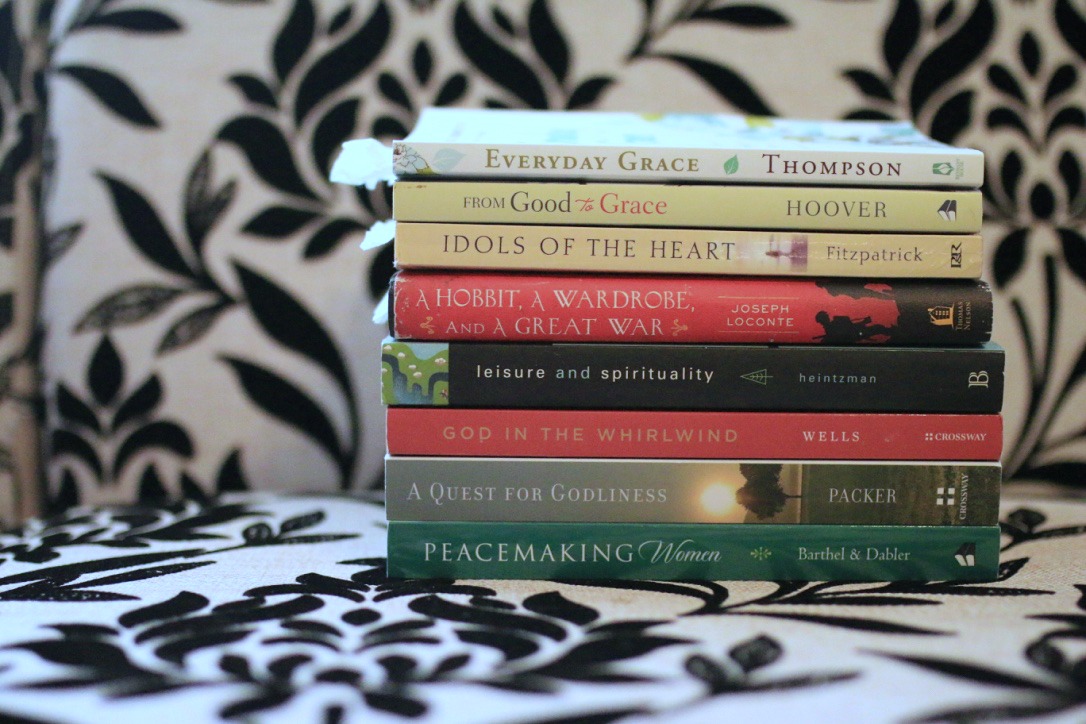
He cover topics such as angels, theories on end times, the sufficiency of Scripture, heaven, and more! You can actually listen through all 117 lessons for FREE on iTunes.
Jason and I both went through all 117 lessons years ago (it took us a while!) and it was so worth it. I’m sure I will go through them again one day. I highly recommend you start listening through his lessons!
How to be discerning when we read
Because I share so many books and reading recommendations, one of the most common questions I get asked when it comes to theology is how to be more discerning with what we read.
Because if you walk into a Christian bookstore today and pick up any random book, chances are it will be full of false doctrine – or it will just be FLUFF! So how do we guard our hearts and minds as we read? I love this encouragement that Aimee Byrd gives when reading:
In Aimee Bryd’s book No Little Women, she says there are four things we should ask as we are reading:
- “What does the author say about God’s Word?” Do the doctrines or teachings differ than what God’s Word directly says? Are they bending Scripture to say what they want it to say? Or ignoring it all together because they just think or feel a certain way?
- “What does the author say about who man is?” We are not God. We are fall, sinful man. We NEED God for any sort of strength in this world. It’s not about man. It’s about God.
- “What does the author say about God?” This is where studying the attributes of God comes in so handy. We need to know who God is, from Scripture, so that when we are reading, we can recognize when an author strays from that. Another important area to study is what the author says about the Trinity and about Christ himself.
- “What does the author say about what God has done and is doing?” Does the author contradict what the gospel says? For example, Joel Osteen’s famous platform is having your best life now. But we know that our best life won’t happen now, this side of heaven. The Gospel promises an eternity of bliss with God if you believe.
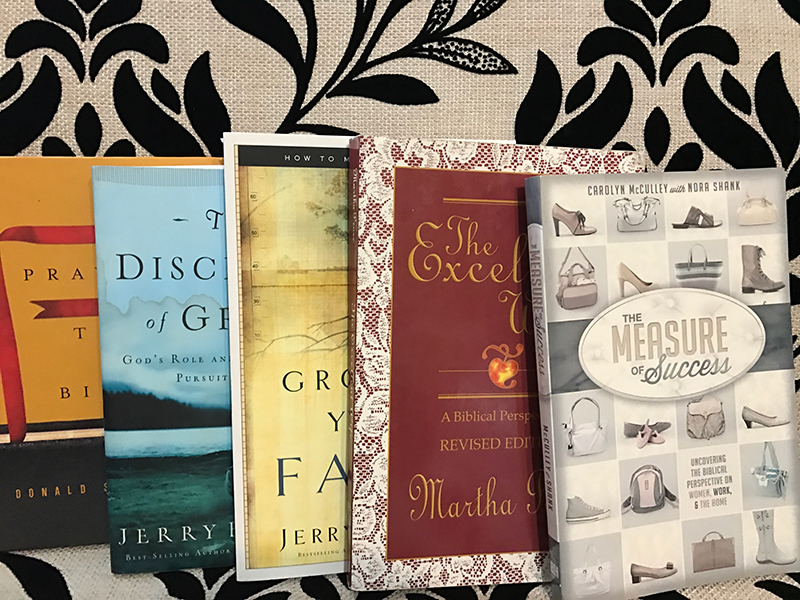
From my reading, there are a few other things to look out for:
Be aware of: Claiming direct revelation from God
We need to be very very careful to not speak for God. We may have personal convictions, we may sense God leading us in His will. But we need to make sure that we don’t speak for God and claim his words. We need to leave all authority in God’s Word alone. We can affirm and encourage others to live out the truth found in the Bible, but MANY popular authors today (especially among women) claim direct words spoken to them from God.
Be aware of: the author sharing more of him/her own personal opinion than Scripture
This one gets a little tricky because obviously stories can help illustrate a point. And there can be personal convictions to share. But a big red flag in my book is a book or article that shares a lot of story with little or no Scriptural back up.
There are time to read biographies for example that are story or narrative based that share about a missionaries life. There are helpful books out there for example on finance that may be based on Biblical principles but share a ton of personal advice or opinion. Those are both more than acceptable books!
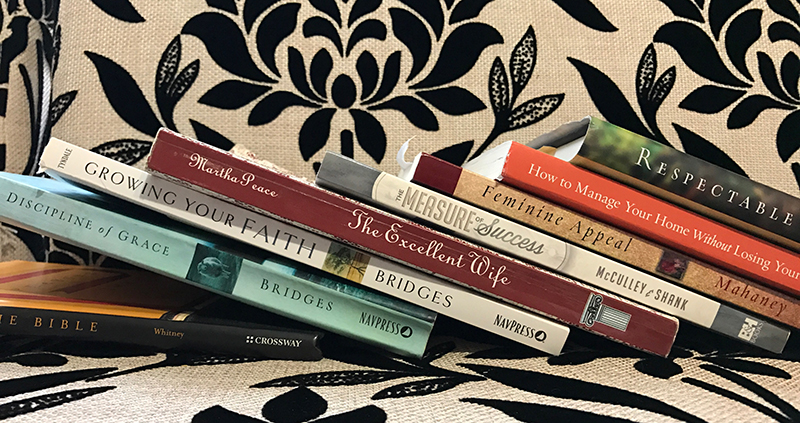
But if the author if calling you to a Biblical ideal or sharing about how to live your life, just be aware of those that teach a lot of personal stories but very little Scripture. Again, use your judgement on this one. But it’s just something to think about.
Be aware of: Making the Christian life about ME rather than about CHRIST.
This is an easy easy mistake to make. And an easy easy mistake to make when reading. We want to make our Christian life all about ME. What am I getting out of this book? How will this benefit ME?
We turn Jesus into Santa and wait for him to grant all of our wishes and give us everything on our Christmas list. We need to remember this life is in fact, all about CHRIST and not about me. “For to me to live is Christ, and to die is gain.” – Phil 1:21
“All of a sudden, the doctrines of the Church that those before us died to protect become obtuse, and the psychological jargon of our times becomes more palatable. The language of the gospel gets hijacked in order to teach personal fulfillment. That is what much of the Christian best seller list has come to, anyway. Many of the top-selling christian books appear to have a high view of Scripture, but, once you get past sparkling endorsements and attractive cover design, they teach extrabiblical revelation, mysticism, New Age Spirituality, the prosperity gospel, or just plan bad exposition. These are not harmless books.” – No Little women, page 116.

Look for a Bible teaching, Christ-Exhaulting Church
One huge encouragement and piece of advice I can give you in this area: is to be in a local, Bible teaching, Christ-exhaulting Church! We are meant to be participating in God’s local body within a local Church.
You should be under your local Pastor. Attending Church, learning from your pastor and local congregation. Forming relationships in which to foster Christian maturity.
I know it can be really tough in some areas to find a Bible-teaching solid church. So here’s one tool you can use to at least start the process.
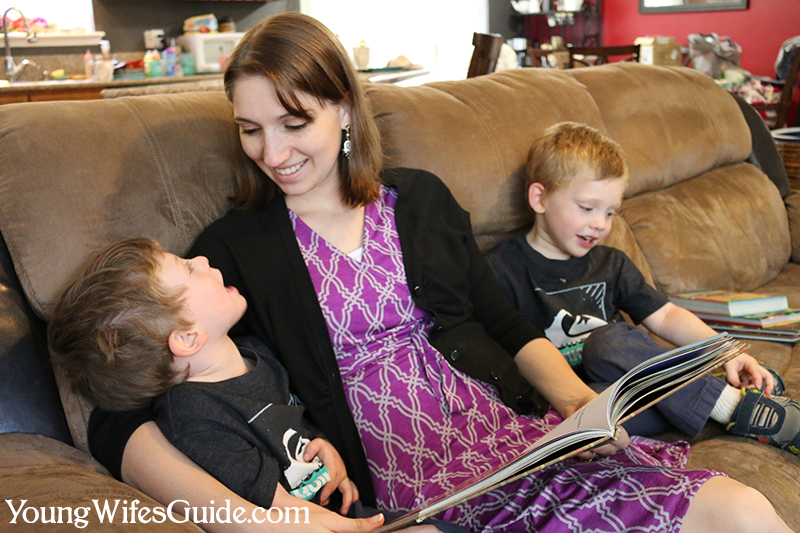
Sort through order of importance on issues
Remember, that those of us in God’s True Church, WILL have differences! The more you care about doctrine and theology, the easier it is to become a separatists. The easier it is to want to only associate with those we believe 100% with. But this is a big mistake! There are many Bible believing denominations today that I don’t agree 100% with, but their doctrinal differences are minor. We can still have true fellowship with these believers and they are brothers and sisters in Christ with us.
Al Mohler has an excellent article on this topic that is well worth the time to read: A Call for Theological Triage and Christian Maturity.
In it, he assess three different levels of theological urgency. So when we are being discerning about who we listen to and what we read, these are important to keep in mind. I highly recommend you read the entire article for further study. But briefly, here are the three levels:
- “First-level theological issues would include those doctrines most central and essential to the Christian faith.” Included among these most crucial doctrines would be doctrines such as the Trinity, the full deity and humanity of Jesus Christ, justification by faith, and the authority of Scripture.
- “The set of second-order doctrines is distinguished from the first-order set by the fact that believing Christians may disagree on the second-order issues, though this disagreement will create significant boundaries between believers. When Christians organize themselves into congregations and denominational forms, these boundaries become evident.” Things such as the meaning and mode of baptism.
- “Third-order issues are doctrines over which Christians may disagree and remain in close fellowship, even within local congregations.” These could be differences over eschatology (end times) for example.

